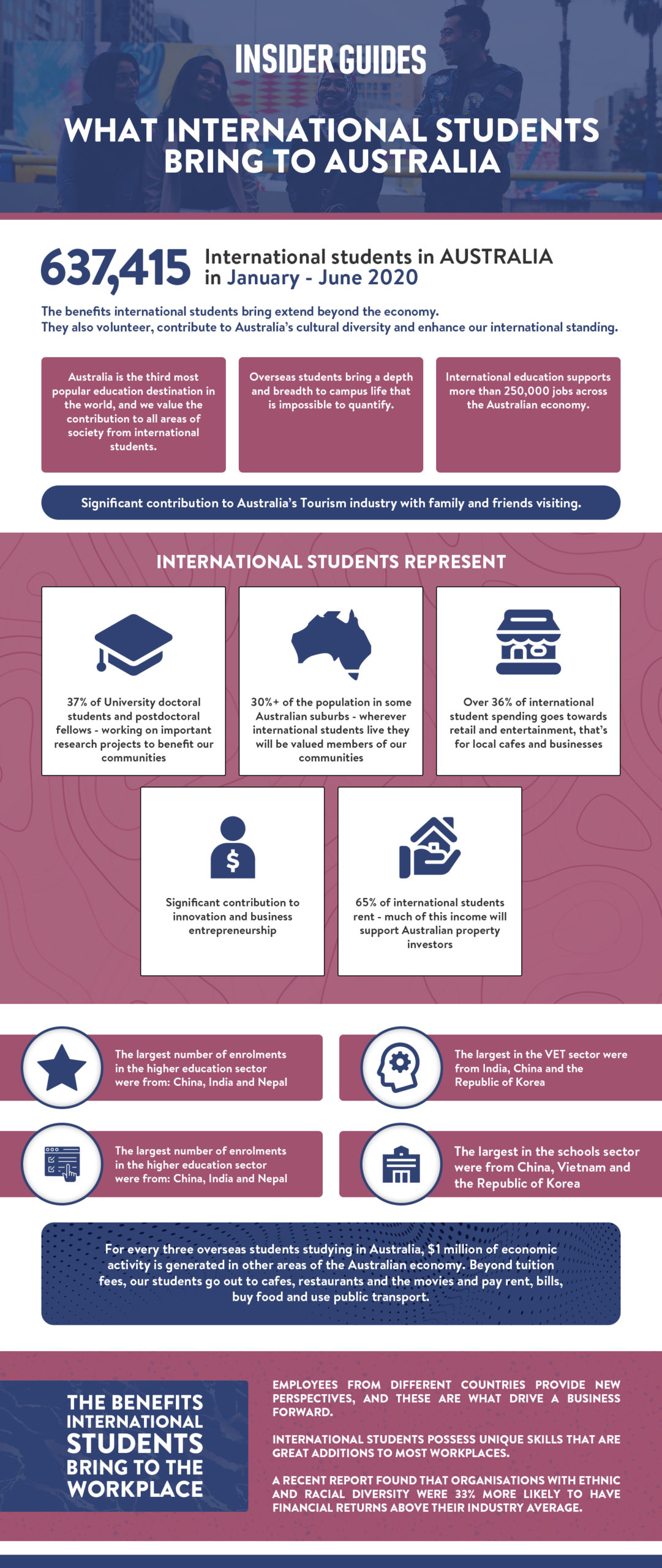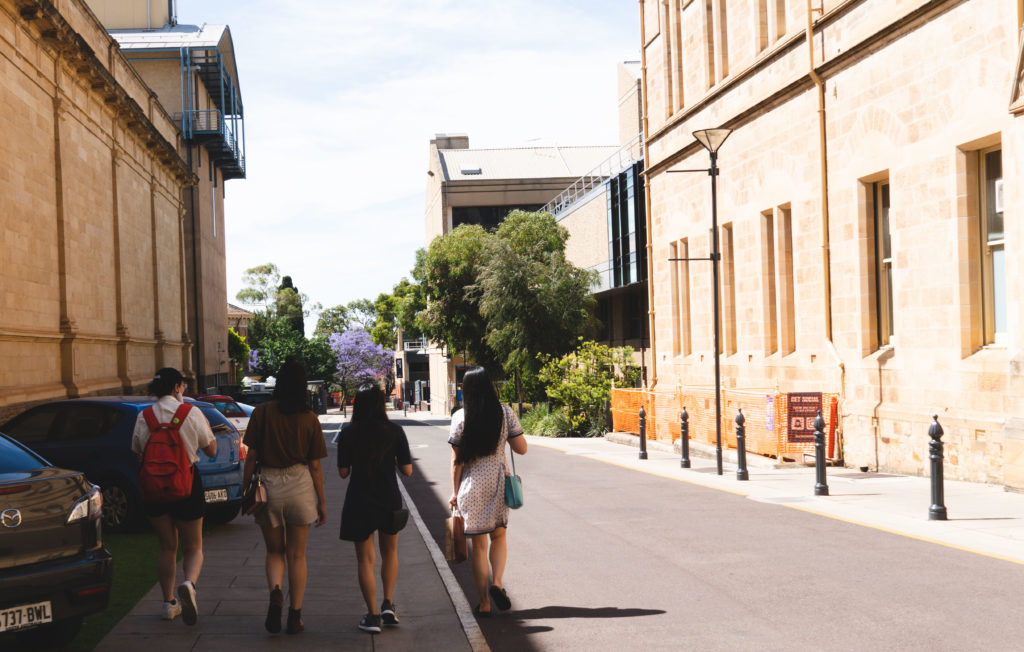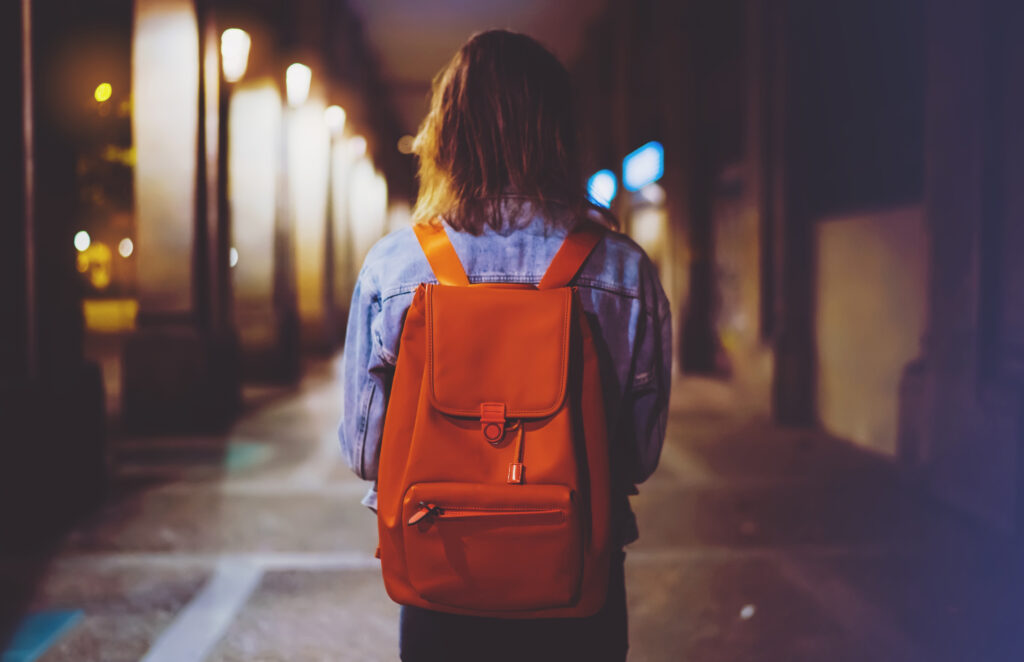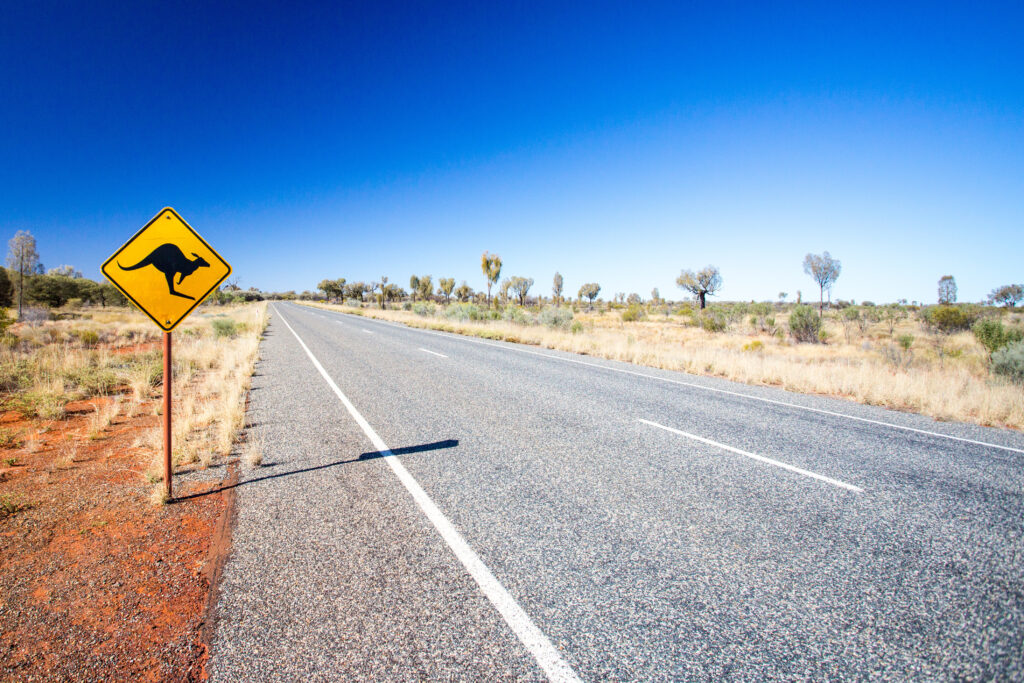International students have returned to Australia in a pilot program for the first time since borders were closed to international travellers, including international students. The Northern Territory Government negotiated a deal with the Federal Government and Charles Darwin University (CDU) to run a pilot program to fly up to 70 international students to Darwin. However, there have been mixed feelings from some Australians about the return of international students, as well as negative comments circulating on social media.




While these comments can be daunting and may trigger fears that international students are not welcome in Australia, they do not represent the sentiments of all Australians.
In an interview, Federal Education Minister Dan Tehan’s response to the discussion pertaining to students studying in Australia, is that “the message is an incredibly welcoming one to international students”.
A similar sentiment is shared by the City of Melbourne’s Lord Mayor, Sally Capp, who was quoted in The Age as saying, “People say to me, ‘oh their families should be looking after them’. We are their family,” in reference to international students.
However, negative comments can still lead to stigma and discrimination towards international students and may even make international students feel unsafe.
The Council of International Students Australia’s (CISA) National President, Belle Lim, shared with us how such comments perpetuate misinformation and have damaging effects on Australia’s international education reputation.
“These types of comments are clearly misguided. This is a small but very loud proportion of Australians who [are] disconnected with the tremendous contribution – economically, socially, culturally and diplomatically – that international students bring to this country,” she says.
“The myths and misinformation around international students are dangerous and damaging to Australia’s reputation as a study destination. The Government and sector must step up to protect students’ safety, send a clear message that racism and discrimination are not tolerated, and emphasise the value of international students as an integral part of the Australian community.”
CISA’s National Welfare Officer, Ray Jenkins, echoes Belle’s sentiments.
“It is sad to see comments that abuse returning students, as if they do not add anything to Australian society. These students risk a lot to study and invest in education for a great Australian experience that is renowned around the world. Demoralising comments not only humiliate international students who are risking more than they gain, but they also undermine a favourable reputation. It has students question[ing] if coming to Australia is worth that risk and investment anymore.”
Why international students are important
“International students for a long time have been contributing to the multicultural makeup of Australian society, adding to the diversity and contributing to the reputation of a globalised higher education network that benefits local communities,” says Ray.
According to the Parliament of Australia, in 2017–18, international education was worth $32.4 billion to the Australian economy, up from $28.1 billion in 2016–17. Research by the Department of Education demonstrates that Australia also attains non-economic gains, such as social, cultural and skilled workforce benefits from international education.

*Sources listed below
International students are a vital part of the Australian community, and the pilot program is indicative that Australia does indeed value their return.
The Federal Education Minister has advised states and territories to draw up plans for the return of international students to Australia. New South Wales Premier, Gladys Berejiklian, wants to use a third of the state’s hotel quarantine slots to bring in international students and skilled migrants. The Northern Territory Government is working with the international education sector to welcome more international students next year. South Australian Premier, Steven Marshall, says South Australia is looking forward to welcoming back international students as they are an “important part of our community, adding to our state’s vibrancy and multiculturalism”.
Where to seek help if you experience discrimination
Being the national peak body for international students in Australia, CISA has a clear strategy to protect the rights of international students in Australia and help prevent discrimination.
“CISA has initiated a comprehensive anti-racism project in collaboration with stakeholders in the sector, including the AHRC [Australian Human Rights Commission], the Australian Government, state and territory governments, universities and other education providers, peak bodies, academics and, of course, students,” says Belle. “We will continue to ramp up our work, and we encourage students who experience any racist treatment to report to AHRC – this will make our voice stronger and make the policymakers take action.”
If you find the negative comments distressing, turn off the comments, or hide or block them from your social media. Seek help, speak to your peers, and/or reach out to your education provider if you need support. Report any incidents of discrimination and seek professional help if needed. For more information on what to do if you experience racism or discrimination, find a comprehensive list of organisations and services that can help you here.
Infographic sources:
internationaleducation.gov.au/research/International-Student-Data
studyinaustralia.gov.au/English/Why-Australia/facts-about-studying-in-australia
internationaleducation.gov.au/research/research-papers
propertyupdate.com.au/international-students-make-up-more-than-30-of-population-in-some-australian-suburbs-interactive-graphics/
studyinternational.com/news/australias-hidden-asset-universities-are-the-new-wealth-of-nations/
go8.edu.au/research/economic-impact-group-of-eight-universities
insiderguides.com.au/international-students-benefits-workplace





